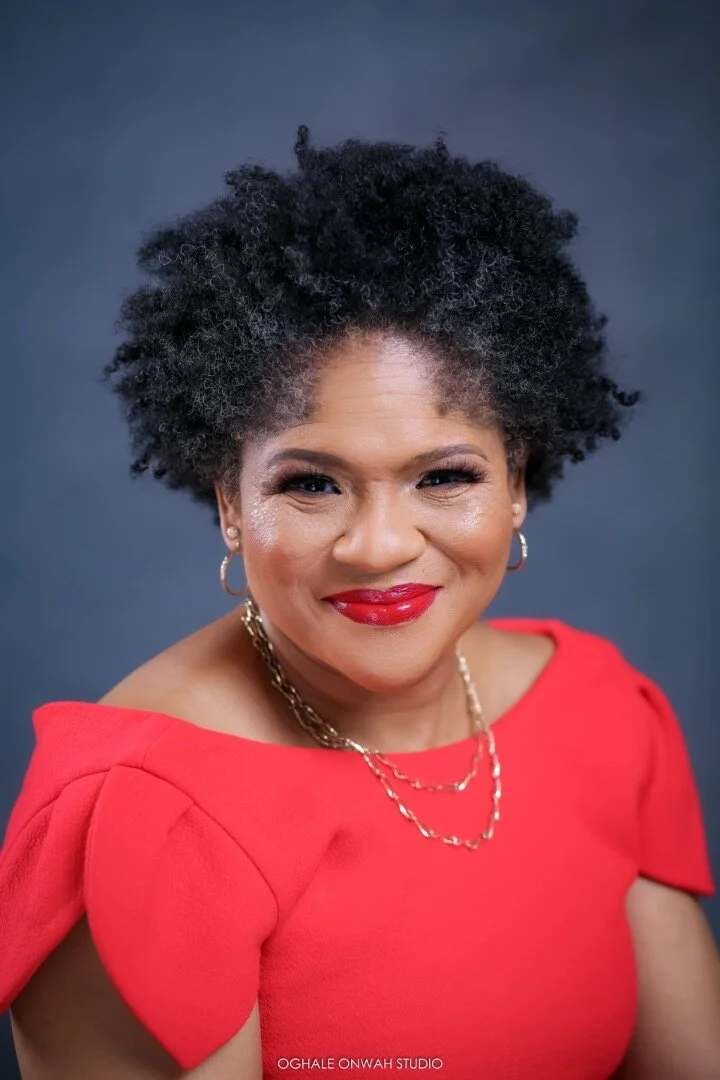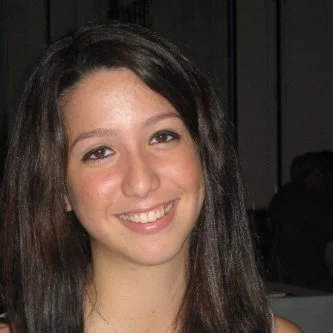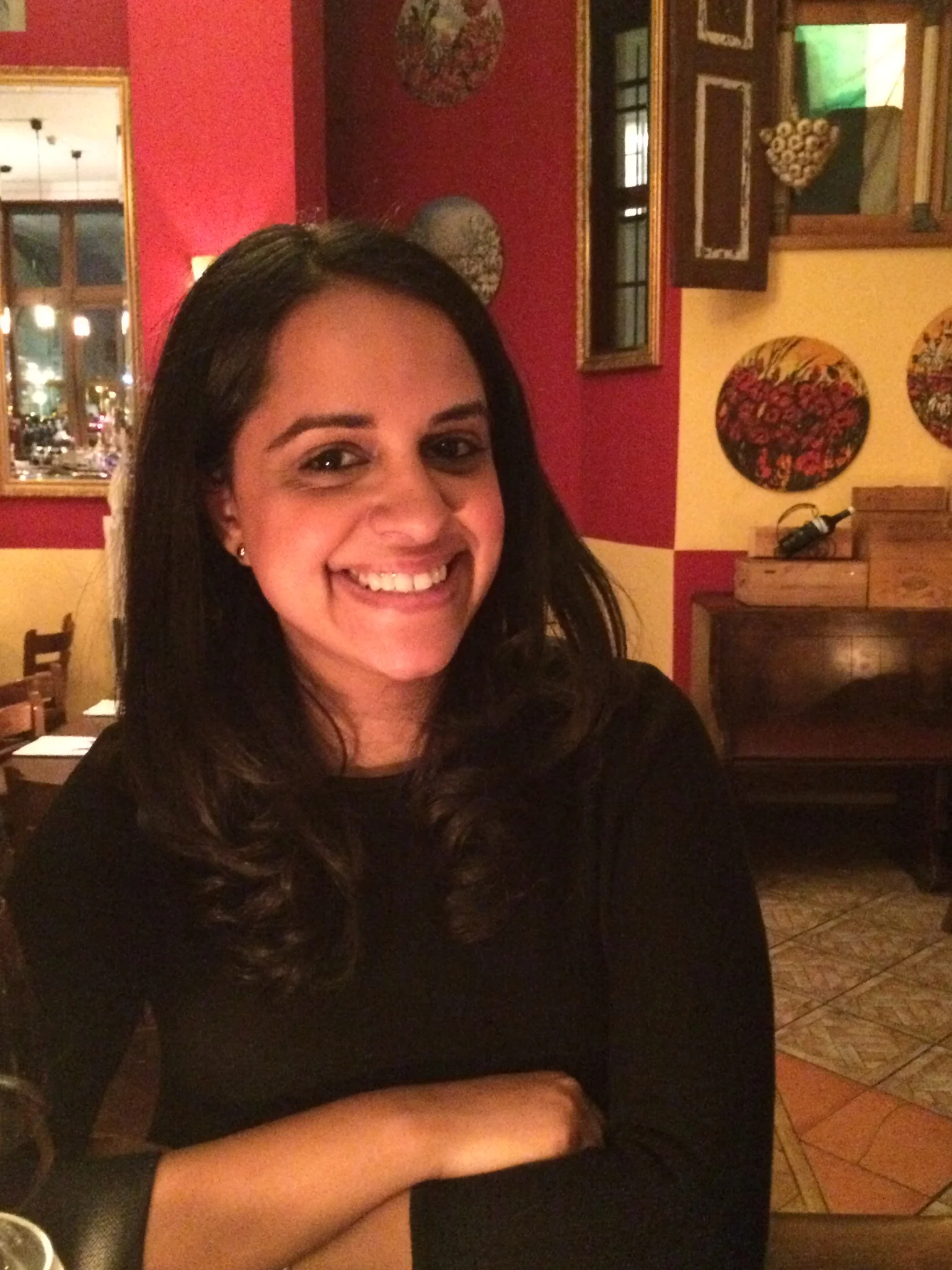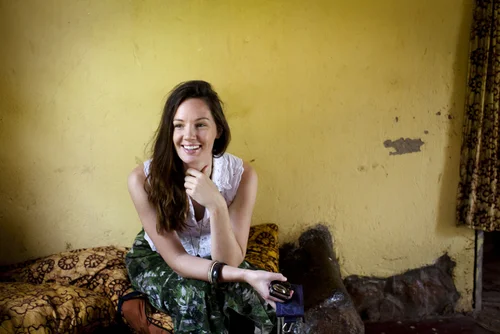Why did you decide to study at Georgetown?
I am multicultural. My dad is French, and my mom is from the Philippines. I grew up in Singapore. I was raised with an interest in international relations and international politics, which is why I chose to study at Georgetown—both my undergraduate and graduate studies.
How did Georgetown change your career perspective?
When I first got to Georgetown, I thought I would go into international relations, but quickly shifted that interest toward international development. The courses were flexible so I chose classes focusing on women in post-conflict settings.
Building up to the curriculum, the real turning point that set off my career was my junior year when my friend and I—my friend having grown-up in Nepal—co-founded a leadership development organization called WomenLEAD, which is still running. We just celebrated its sixth birthday.
After graduation, I started working for WomenLEAD full-time, focusing on our fundraising, board relations, and communications in the US, and going back to Nepal once a year. I did that for about five years, including part-time for two years while I went back to school for graduate studies in international development.
How did you end up working for Catholic Relief Services?
At the end of graduate school, I decided to join Catholic Relief Services (CRS) as a member of their International Development Program, a program that develops their pipeline of leadership.
As an International Fellow, I was based in Madagascar. With the fellowship, we had a personalized work plan, and we rotated through different departments of the country program, which could mean rotating within finance, operations, programming, etc. Primarily, I worked with the business development team. The fellowship provided us with training, the ability to see the different departments within a country program and the different ways a large organization works.
In my current position as Program Manager for Nutrition Sensitive Agriculture, I work closely with project teams and partners to ensure high-quality design, integration, and direct implementation of CRS Timor-Leste’s nutrition-sensitive agriculture projects. I manage two programs: one World Bank-funded, the other funded by the Australian Government. The goals are to improve the nutritional status of women of reproductive age and children under two years in Timor-Leste.
Why did you become interested in international development?
It stems from a long-held passion for empowering women and girls and recognizing that women and girls around the world still face many obstacles.
During my junior year, my co-founder and I saw this need within the communities that we worked with in Nepal. We were able to bring what we thought was part of a solution, and for us, that was about personal and professional development for young women. WomenLEAD works with girls during their last year of high school and part of that is preparing girls to go into university, preparing them to start thinking about their careers. We had the privilege to receive that in our own careers and it had been very important to us, as we went about our own careers. We thought it was important for all girls to have an opportunity to receive support, no matter where they are. For me, that meant meeting passion with opportunity. When you are that young, a lot of it is going with the flow. We simply jumped in because you do not know what we were jumping into.
What skills make you good at what you do?
Business development, which has different names in different industries (sales in the corporate world). In my previous position with a smaller non-profit, I learned that in international development, creating business plans or fundraising would be skills needed for my entire career because any organization needs to find money to survive.
The key skill is knowing how to get donors or customers on-board. There are many ways to do it, including developing strong communication skills, whether that is writing skills or public speaking skills or building relationships. They are skills you will need for any position, at any point in a career, so it is important to develop them as early as possible. They are hard to develop at university because there aren't fundraising or business development classes, at least not during undergraduate studies. In grad school, you can start proposal writing. Fundamentally, it comes down to putting yourself in positions where you have an opportunity to hone that skill.
How will the scope of your work evolve over time?
I want to work within different departments to see how they function. It is important to know how operations and finance work within a country program. There are interesting aspects to try to find alignment among, what does the organization need versus what skills do I want to hone. The balance will involve doing a bit of both—doing more about honing my skills in what I am passionate about but also doing things that the organization needs. I cannot say it will go in one specific direction over another because it will depend on what comes up, and so many things can happen with an organization that needs to be responded to.
How do you see yourself situating your career in the field of International Development?
I am early in my career, but I want to get a diversity of experiences. I worked for a small organization and now I work for one of the largest non-profit organizations in the world. It was important for me to get both of those perspectives. In the future, I will need to get different exposure, whether it means working for a multilateral organization or the government because that is the best way to learn. There are different and equally important, things to be learned from working with a small NGO and a larger one. For me, the transition was about getting to the next challenge and asking myself “How can I learn from that challenge”?
My passion resides in women and girls’ empowerment and being able to do that in any capacity, whether it is the projects I work on or within an organization that does that work. For me to do that effectively, I need to get the skills that I am learning now. There are so many important things that I need to know about the running of a large, and small, organization. I need to have a tight grip on who the players are in the industry and how things work on a national level in headquarters versus in the field. As I move forward, those are things that I am trying to learn.
What has been one of the biggest challenges in your career?
The process of starting a non-profit organization is a huge endeavor. We were creating everything from scratch and learning by doing, not really learning from anyone else. No one told us what to do or how to do it. It was both an exciting and a very difficult thing to do. I learned a lot in the years that I was working with WomenLEAD, but it can be challenging being an organization that is always looking for funding. To a certain extent, all organizations go through that challenge but we were doing it with far fewer resources. For a long time, I was the only fundraising person, which meant I was the whole team. I learned a lot, but it was incredibly hard. I do not want that to get lost in passionate conversations about social entrepreneurship because it is important to acknowledge the reality of how hard it is. As with anything that is difficult, it was incredibly rewarding as well.
What do you wish you had known prior to starting WomenLEAD?
Everything! The only way to learn anything is really by doing it. Had I had more information or known more, I would have been more fearful to do it. That is the advantage of not knowing—jumping in and figuring it out.
It would have been helpful to know business fundamentals and basic accounting principles.
The only reason I could do anything was because I had a co-founder, which is incredibly important. My co-founder ran the programs and set-up our organization in Nepal. Having someone who shares a vision with you, who brings different skills to the table, who you can work and create something with, helps with the lonely experience that comes with launching your own organization. When you have a co-founder, you both know exactly what you are going through, and are able to turn to each other and support each other through that process—it was another component of the success of WomenLEAD.
What piece of advice would you give someone interested in international development or women’s empowerment as a career path?
Gender cuts across all sectors. I never want to think about gender as a standalone, separately from everything else. I struggled with this in graduate school. It is in everything that we do. I did not pursue a specialized master’s in gender because I wanted to have a generalist position and bring my own skills and knowledge around gender to whatever classes I was taking. I took a health class, an agriculture class, and tried to apply a gendered lens to what I was studying. The way I view it, gender analysis needs to be in tandem with knowledge of other sectors.
In my own career, that is what I am trying to do. Even when I am working on a project that might not seem directly linked to gender, I wonder “how can I personally bring that to whatever team or project I am working on?” That is how I view it now, and I might end up later in my career moving toward something that is more, or less, gender-focused, which is often the way you try to integrate your passion into anything that you do.
Would you recommend Georgetown University?
I am a Georgetown lover and would highly recommend it. Georgetown changed my life. I met my closest friends and my co-founder at Georgetown. Georgetown gave me a lot of opportunities when I was building WomenLEAD. In that sense, I would say a resounding yes.
I chose to do my master’s degree at the same university because I was looking for a practitioner-focused program and that is what I found in the Global Human Development (GHD) program. It is a very small program with a lot of attention from faculty, and that was what I wanted for my own education. I wanted to be inside small classrooms and learn from my professors and my classmates. I found that my classmates were role models, and I was inspired by them. They are doing amazing things around the world right now. I learned so much from them because the program a lot of my classmates had up to a decade of experience. One of the biggest takeaway from the degree was the opportunity to learn from people who had worked in the private sector, governments, and multilateral organizations. In class, they all came in with different viewpoints that I could learn from.
That said, it is a very new program, so it is a dynamic program that is still figuring itself out. It was a good fit because I wanted a general approach to the field. However, GHD would not be the best fit for someone who is looking for a bigger program or a specialized course. I think it is a question of knowing what you want out of a master’s program. Ask yourself, “what is right decision for me, and my career?” In our industry, the master’s degree is essential, and represents a clearer path for us career-wise.




















